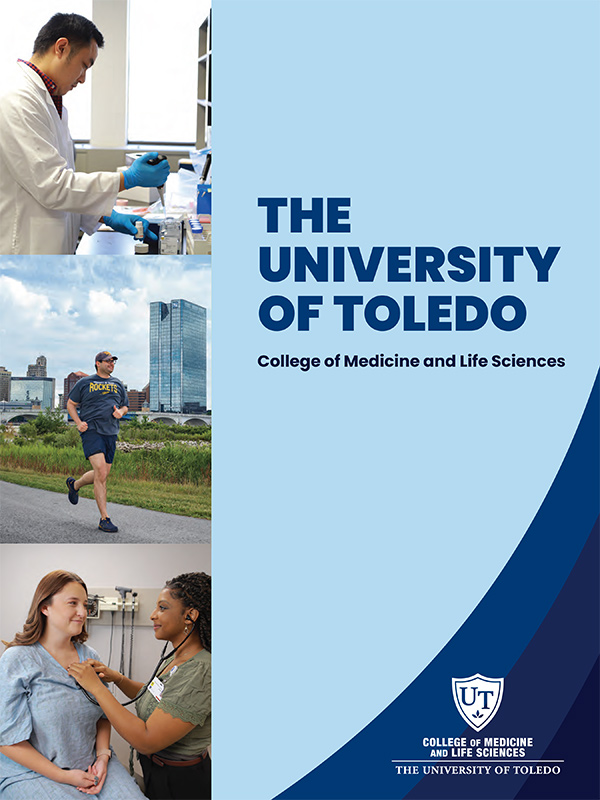The Biomedical Science Graduate Program at The University of Toledo prepares students for an independent career in research through advanced course complemented by active participation in faculty-mentored laboratory research in one of our five BMS Research Tracks.
Tracks are organized around research themes that relate to human disease processes. They are affiliated with basic science departments but are interdisciplinary and draw faculty members with common research interests from a variety of basic science and clinical departments.
Concentration / Tracks:
The University of Toledo offers research-intensive Doctor of Philosophy (Ph.D.) and Master of Science (M.S.) degrees in Biomedical Science in five concentrations or tracks:
Want more information?
Hear from our students
Hear directly from our graduate students:
Dual Degrees
The four tracks also offer Ph.D. and M.S. in Biomedical Science degrees in combination with the Doctor of Medicine degree (M.D.) through the College of Medicine. Typically, the M.D./M.S. and M.D./Ph.D. dual degree students complete the first two years of medical school, then complete the graduate degree, and follow that with their last two years of medical school. The same financial aid described above for graduate students is available to dual degree candidates during their graduate school training. Medical school tuition scholarships also are available on a competitive basis.
Learn More About the M.D. / Ph.D. Program
See full list of Graduate Degrees available from the UToledo College of Medicine and Life Sciences.
Explore our full website using the menu at the top of the page.
Inclusion & Opportunity
The University of Toledo — and the College of Medicine and Life Sciences — is committed to an environment where every student, staff member and faculty member feels included and respected. Learn more on our Office of Inclusion and Opportunity website.
In the News

"My research methods give me the tools to combine information about the activity of specific genes with information about the activity of the proteins that these genes code for, to identify new drugs that may be used to treat diseases. This new approach, using big data for drug discovery, is critical for finding ways to treat disorders that still have very few or no treatments, like autism, Alzheimer's Disease, and Parkinson's Disease."
Jennifer Nguyen, a Ph.D. candidate in the Bioinformatics Track of our Biomedical Science Program, wrote a column in the Toledo Blade discussing the drug discovery process. Jennifer is conducting her research with Dr. James Burkett.
Latest News
LIVING IN TOLEDO, OHIO
— A SAFE, AFFORDABLE CITY
The University of Toledo is located in Toledo, Ohio, on the western shore of Lake Erie. Nicknamed The Glass City, Toledo has the cultural amenities of a big city and the close-knit feel of a small town. We are within hours of most major Midwestern cities.
About UToledo


